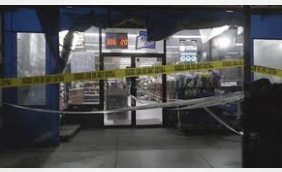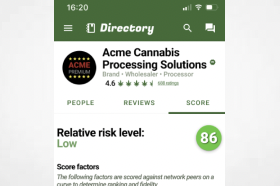Authors
When tackling your computer systems, software, and quality control processes, keep in mind
that there are many paths to travel, and the smartest way is to go piece by piece as your
company grows. You will find that there are diverse softwares for various sectors of your
company, but the Enterprise Resource Planning (ERP) software is the base software that
regulators must see and ties to most of your businesses. Furthermore, principally important to
becoming an EU-GMP certified building is developing your quality management system.
The ERP runs everything from financial operations, personnel organization, delivery and
ordering, logistics, manufacturing, quality control (QC), quality assurance (QA), maintenance,
reporting and business intelligence. These are also core functions of your GMP manufacturing
facility. For smaller companies, you have only a few options including Microsoft and Sage which
cost around $100,000, when accounting for basic implementation. There are also much more
robust systems like Oracle and SAP with eye popping $1,000,000+ price tags. Interestingly, the
entry price and recurring licensing fees are relatively small, compared to more complex
integrations, which can go up significantly to even building an entire IT department around your
ERP and the various other softwares you may want later. In any case, start with the ERP, and
then add systems like your LIMS (which was discussed in the last series) later. There are other
systems like the Siemens bridge system that can talk to your machinery, and systems like MES
that can all be added later once you get the ERP humming.
Company Management
The management of a cannabis company is very complex and needs support as more detailed
information comes available such as supplier pricing, stock changes, running costs, accounting
tables, manufacturing prices, sales prices, clients, etc.
The ERP operates as a system, collecting data in real time and connecting it all together for your
staff. Most ERP systems have a business intelligence module that allows high level reporting to
management and provide your teams with the needed tools to drive the company.
Access Control
Since the ERP is equipped with all of the company’s information, the access to data is controlled
and each user can only access part of the information. Some users can have unique privileges to
make changes, whereas others may only be able to see the data.
The QA department usually defines the user access to be controlled and each user will have his
own login and password the system requires at each login session.
The access to the system can be made from individual terminals or even web-browsers
anywhere in the world to allow managers access when travelling or remote working. But in
general, it is best practice to limit on-line users to critical personnel and not the entire staff.
Cannabis Stock Control
The stock of cannabis products is controlled by narcotics laws, meaning you need a very precise
system of control. This is exactly what the ERP will provide, and it will have everything
regulators will want to see about your operations. The system will control what you buy, from
who you buy (only suppliers approved by QA), the real quantity received, losses, samples taken,
product processed, and finished product.
The system will provide reports with traceability that will be used to provide the regulatory
authorities with the needed required legal data. The ERP will also allow you to have better
warehouse storage since you will not need to use labels on the raw materials saying approved
or quarantine, saving time and money.
Manufacturing Process
The manufacturing process starts with client orders and stock management. In this area, the
head of QA imposes controls inside the ERP system. The formulation of the product inside the
ERP is called Bill Of Materials (BOM). BOM is created on the system by the manufacturing
department based on the formulation approved in the dossier, which are then submitted to the
regulators. Importantly, only the manufacturing heads can create the BOM. However, before
manufacturing can start using the BOM, it is subject to the approval of the head of QA. Only
then, does the system become usable. This critical process ensures no one can make changes
that may alter the origin of non-conforming manufactured products. The system controls
manufacturing through production orders, detailing all the materials used, and times needed
for each operation which are all specified in the Bill Of Activities (BOA) and will be recorded in
the system. Any change of record will be registered in the system to provide your QA
department with all details of changes and processes in the system.
Quality Control Laboratory
The laboratory of the QC department will analyze raw materials, intermediate products,
finished products and environmental conditions in clean rooms. As a raw material enters the
warehouse, the ERP sends an automatic request to analyze the product in the laboratory. The
same request also happens for intermediary products and finished products.
Inside the system, there is a list of each analysis needed to be made which the laboratory
analyst follows. At each step, the laboratory manager will either approve or not approve to
move forward based on the results and will update the ERP accordingly. After these steps, the
ERP will provide a Certificate Of Analysis (CoA). In small ERP systems, these basic functions are
provided, but for more detailed information in the laboratory management you will eventually
need the LIMS (Laboratory Information Management System).
Quality Assurance
The ERP is an important tool for QA, and all requests are tracked in ERPs that are built
according to GMP requirements. The ERP will provide the control and record of processes and
investigations of deviations detected during all processes created in the system.
The critical task of releasing a batch of finished products to the market is assured by the ERP
recorded data, whereby only after approval and release in the system is the finished product
released to be sold. It is important to consider that the system needs to be validated after
implementation, and this is normally not completed by the supplier of the ERP, rather by
independent verification.
ERP implementation
The ERP implementation takes between 4 to 6 months of installation and programming and
should be well coordinated with the project’s construction timeline and the recruitment plan.
The implementation process will need the key-users to already be identified and working in the
company. This means to be qualified, you must be able to identify financial users, logistics
users, manufacturing managers, QC/laboratory control staff, QA and sales managers. Significant
parameters need to be defined by each group, forcing teams to have business models properly
defined. The coordination of the teams is critical, and it is necessary to coordinate the
Implementation Consulting team with your team at early stages.
Legal Accounting
In order to be approved, the ERP must be accepted by local regulatory authorities for
accounting. This is important because the system will communicate cannabis financing details
directly to authorities in order to maintain compliance. All documentation that goes with any
shipments must be communicated in real time to the authorities through the ERP. As always,
tracking of medicines and narcotics is a very serious part of maintaining a healthy
manufacturing company but luckily the ERP functions to keep the company in check and
operations running smoothly.
Production Cost Calculation
The system of production cost calculations is very critical in the ERP implementation process. If
not correctly implemented, this can destroy your business. Imagine if the system gives you a
lower price for manufacturing than the real price. If you make a contract of supply with lower
pricing, you will lose money due to poor programming. This underscores the crucial importance
of proper forecasting and budgeting before implementation of the ERP. You will also need the
BOM and BOA for all products you plan to produce. Though, these are starting blocks, without
them you pose the risk of losing time and money during implementation.
Security Systems and Ransomware Attacks
Finally, administering a strong security plan against ransomware and other hacks is critical in
your ERP implementation plan. Since, all of the information of the company is in this system,
compromise or a breach of any sort can stop your entire manufacturing operation until it is
resolved. Also, a hacker attack can get all your detailed information. Make sure you observe
tight access to the ERP to avoid costly issues of the future.
Start the ERP integration during your construction phases and do not wait until you are open.
Waiting will serve to dramatically lengthen your GMP certification process. Thinking through
your processes, products, and developing your staff by designing the ERP will strengthen your
company from the launch. In essence, you are designing your entire company digitally and
preparing for your manufacturing before your doors are even open. If executed well and early,
you will save an incredible amount of money in your startup from the beginning.



















